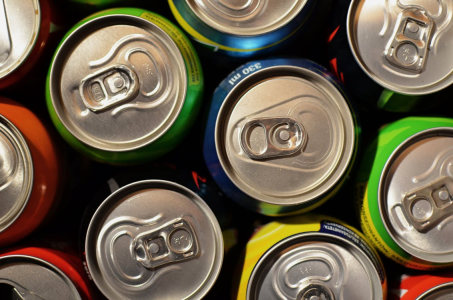‘It’s just an animal study, but…’: Scientists sound alarm over popular diet drink ingredient
By
Maan
- Replies 38
Artificial sweeteners have long been marketed as a healthier alternative to sugar, but emerging research suggests there may be more to the story.
A recent study has sparked fresh debate over the potential health risks associated with a popular diet soft drink ingredient—raising questions about its impact on the body.
Now, researchers are examining whether this common additive could be linked to serious health concerns, including cardiovascular disease.
A popular diet soft drink ingredient was linked to cardiovascular disease and brain blood cell disorders, prompting fresh concerns over artificial sweeteners.
Researchers from Karolinska Institutet, alongside colleagues at Shandong University in China, conducted a study on how artificial sweeteners like aspartame affected mice and monkeys.
Aspartame, a widely used artificial sweetener, was found in diet soft drinks, including Diet Coke and Sprite Zero, as well as products like Extra gum and Equal.
Discovered in 1965, aspartame was approved for use in Australia in 1986.
The study examined 12 mice, split into two groups, over 12 weeks.
One group consumed a high-fat, high-cholesterol diet containing 0.15 per cent aspartame—double the legally permitted amount in human beverages.
The other was given a diet containing 15 per cent regular sugar.
The mice consuming aspartame developed more atherosclerosis in the aorta, the body’s largest artery, compared to the sugar-fed group.
These mice also exhibited higher insulin levels, a hormone produced by the pancreas that regulates blood sugar, with elevated levels often linked to type 2 diabetes.
Researchers also detected increased levels of CX3CL1, an inflammatory protein associated with atherosclerosis.
Mice lacking the receptor for CX3CL1 were unaffected by aspartame consumption, suggesting potential targets for cardiovascular and stroke treatments if the findings applied to humans.
Some results were confirmed in monkeys, though further research was necessary.
The study acknowledged that the mice used were particularly susceptible to atherosclerosis, making it unclear how the findings would translate to humans.
‘We show that aspartame consumption stimulates insulin release and contributes to atherosclerosis in mice, and which molecules are involved,’ said Yihai Cao, a professor at Karolinska Institutet’s Department of Microbiology, Tumor and Cell Biology, who led the study.
‘It’s just an animal study, but we think the results may also be relevant for humans because we see that aspartame affects insulin release in monkeys as well.’
Cao stated that more research was required to determine if other artificial sweeteners had similar effects and how diet played a role.
‘Human studies are rather difficult to conduct because intake of other foods and beverages can result in insulin release. Different individuals may also respond differently because factors such as age, gender and lifestyle can also affect insulin release,’ he said.
Experts remained divided on the findings.
Professor Oliver Jones, a chemistry expert at RMIT, noted that the mice used in the study were prone to heart disease.
‘Even if aspartame did cause some increase in cardiovascular risk…then that risk would likely be very small compared to things like high fat/high sugar diets and lack of exercise,’ he said.
Meanwhile, Professor Mark Wahlqvist argued against the continued use of artificial sweeteners, stating that their ‘inappropriate use’ should be stopped.
Hidden dangers could be lurking in everyday products—find out what experts are warning about.

With artificial sweeteners being a staple in many diets, do you think the potential risks outweigh the benefits? Is the concern overblown?
Let us know your thoughts in the comments.
A recent study has sparked fresh debate over the potential health risks associated with a popular diet soft drink ingredient—raising questions about its impact on the body.
Now, researchers are examining whether this common additive could be linked to serious health concerns, including cardiovascular disease.
A popular diet soft drink ingredient was linked to cardiovascular disease and brain blood cell disorders, prompting fresh concerns over artificial sweeteners.
Researchers from Karolinska Institutet, alongside colleagues at Shandong University in China, conducted a study on how artificial sweeteners like aspartame affected mice and monkeys.
Aspartame, a widely used artificial sweetener, was found in diet soft drinks, including Diet Coke and Sprite Zero, as well as products like Extra gum and Equal.
Discovered in 1965, aspartame was approved for use in Australia in 1986.
The study examined 12 mice, split into two groups, over 12 weeks.
One group consumed a high-fat, high-cholesterol diet containing 0.15 per cent aspartame—double the legally permitted amount in human beverages.
The other was given a diet containing 15 per cent regular sugar.
The mice consuming aspartame developed more atherosclerosis in the aorta, the body’s largest artery, compared to the sugar-fed group.
These mice also exhibited higher insulin levels, a hormone produced by the pancreas that regulates blood sugar, with elevated levels often linked to type 2 diabetes.
Researchers also detected increased levels of CX3CL1, an inflammatory protein associated with atherosclerosis.
Mice lacking the receptor for CX3CL1 were unaffected by aspartame consumption, suggesting potential targets for cardiovascular and stroke treatments if the findings applied to humans.
Some results were confirmed in monkeys, though further research was necessary.
The study acknowledged that the mice used were particularly susceptible to atherosclerosis, making it unclear how the findings would translate to humans.
‘We show that aspartame consumption stimulates insulin release and contributes to atherosclerosis in mice, and which molecules are involved,’ said Yihai Cao, a professor at Karolinska Institutet’s Department of Microbiology, Tumor and Cell Biology, who led the study.
‘It’s just an animal study, but we think the results may also be relevant for humans because we see that aspartame affects insulin release in monkeys as well.’
Cao stated that more research was required to determine if other artificial sweeteners had similar effects and how diet played a role.
‘Human studies are rather difficult to conduct because intake of other foods and beverages can result in insulin release. Different individuals may also respond differently because factors such as age, gender and lifestyle can also affect insulin release,’ he said.
Experts remained divided on the findings.
Professor Oliver Jones, a chemistry expert at RMIT, noted that the mice used in the study were prone to heart disease.
‘Even if aspartame did cause some increase in cardiovascular risk…then that risk would likely be very small compared to things like high fat/high sugar diets and lack of exercise,’ he said.
Meanwhile, Professor Mark Wahlqvist argued against the continued use of artificial sweeteners, stating that their ‘inappropriate use’ should be stopped.
Hidden dangers could be lurking in everyday products—find out what experts are warning about.
- Beware of harmful chemicals in your cleaning products. Do you know what to avoid?
- Harmful ingredient triggers urgent recall for gluten-free bread from supermarkets
- Do grocery receipts contain toxic chemicals? Woolworths and Coles respond to allegations
Key Takeaways
- A study by Karolinska Institutet and Shandong University linked aspartame, a common artificial sweetener, to cardiovascular disease and brain blood cell disorders in mice and monkeys.
- Mice consuming aspartame developed more atherosclerosis and higher insulin levels, which are associated with type 2 diabetes, while those lacking a specific protein receptor were unaffected.
- Some findings were confirmed in monkeys, but researchers acknowledged the study's limitations, as the mice used were particularly prone to atherosclerosis, making human implications uncertain.
- Experts remained divided, with some cautioning against artificial sweeteners and others suggesting the risks were minimal compared to other dietary and lifestyle factors.
With artificial sweeteners being a staple in many diets, do you think the potential risks outweigh the benefits? Is the concern overblown?
Let us know your thoughts in the comments.
Last edited:








